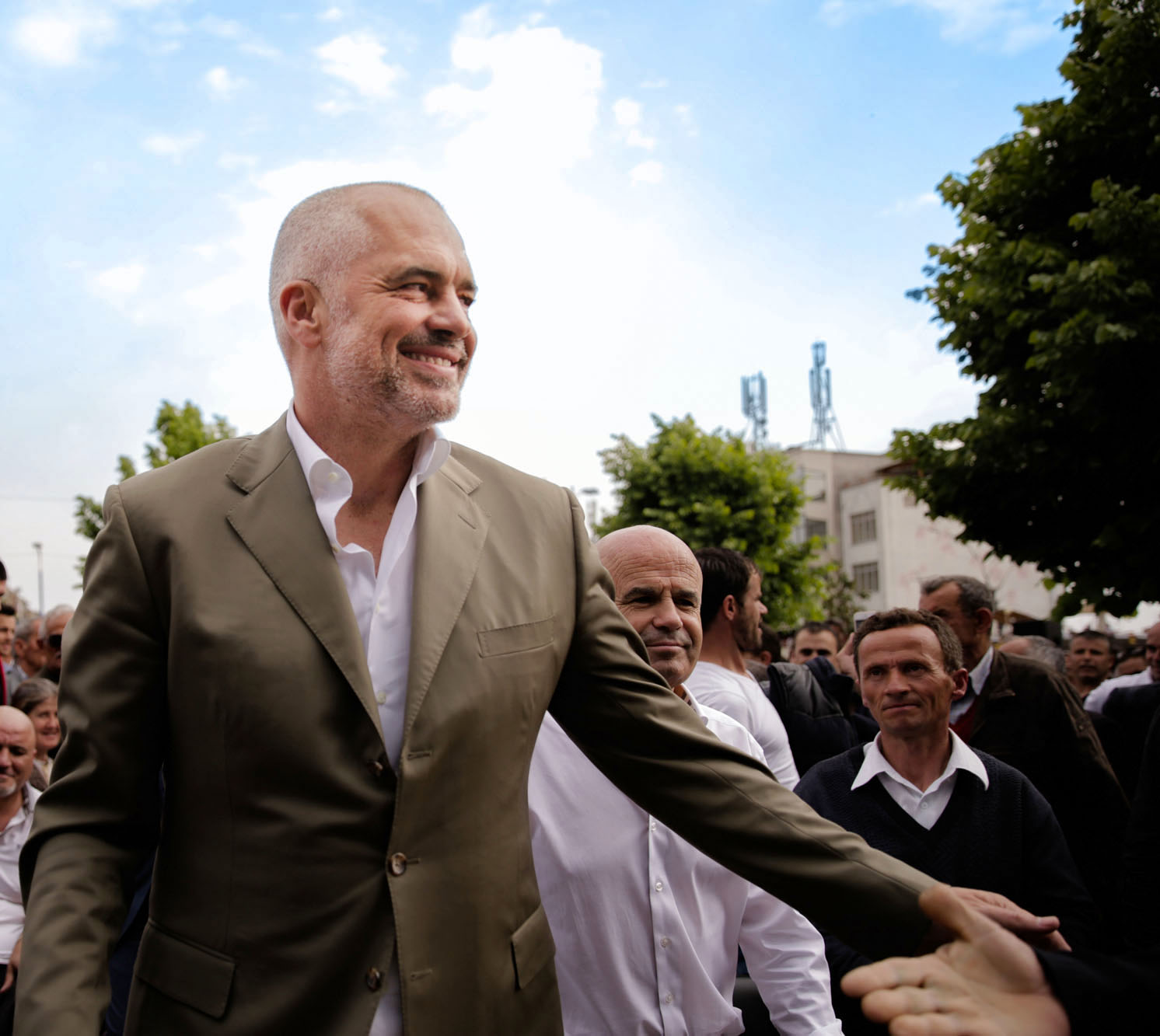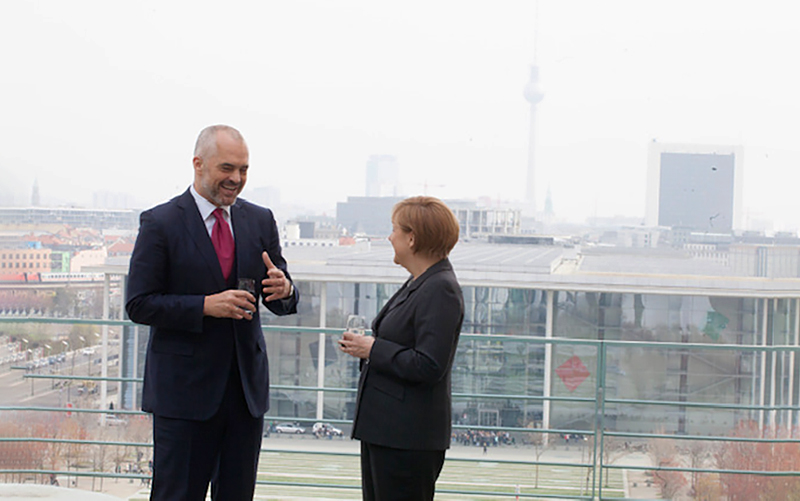
Confirmed for his second term as Albanian prime minister in 2017, Edi Rama has thrust his considerable energies into pressing Albania’s case for opening membership negotiations with the European Union. Even with opinion polls measuring popular support for his EU moves at around 80 percent and steady progress on wide-scale reforms, Rama still faces problems that hamper his ambitions to join the union.
An artist, and later art professor, long before he entered politics, Prime Minister Edi Rama is on a mission to bring color into people’s lives. For most communist-era Albanians, lack of freedom vied in the misery stakes with shortage of services, inadequate education, substandard housing, and ugly surroundings.
After becoming mayor of Tirana, he set about cheering the place and the people up. Bulldozers demolished shoddy new buildings erected by profiteers and many old apartment blocks were painted bold and bright colors. Upgrading infrastructure was slower because it needed serious money.
“The colors were not art for me,” says Rama. “It was a political action, with colors. We didn’t have money for big construction projects. People needed everything: water supplies, roads, lighting. When I became mayor, there were only 78 working street lights in Tirana.”
Yet the quick-fix paint job had a remarkable effect. The regular rate of city tax collection had been around four percent. In the areas where flats were painted, the level shot up to 100 percent, he said. Bigger and better projects followed, including the renovation to Tirana’s central Skanderbeg Square that won the 2018 European Prize for Urban Public Space, one of the highest prizes in architecture.
Rama’s entry into politics had come in 1998, when he returned to Albania to attend his father’s funeral from his expanding career in Paris as an artist.
A Cabinet reshuffle left a vacancy to head the Ministry of Culture and Rama was tapped for the job, which additionally took in the portfolios of youth and sport. Larger than life in character, as well as – at 1.95m – larger than most physically, Rama pulled on his contacts from the European art world, with virtually no government funding, to provide creators and curators to stage an international art exhibition.

“We have been incredibly lucky to live and work at the same time as Angela Merkel… I sincerely hope her vision will not be lost, and even more, Germany understands it is not only responsible for the future of children in Germany, but from all over Europe and beyond,” said Edi Rama in January 2019.
His height had helped him to become a member of the national basketball team and Rama admits there was an ulterior motive in his sporting ambition. Foreign travel was forbidden until 1990 and the reason he “absolutely wanted” to reach the national team was the opportunity to go abroad.
His first trip outside the country was to Austria, although the Kunsthistorisches Museum in Vienna he penciled in for a visit was closed on the Tuesday he was there.
Under communism, Tirana was a backwater of 200,000 people. Until 1991 private cars were banned, shops were few and dismal and there was very little entertainment. Now it is a vibrant capital, with a booming tourist scene, thriving leisure activities and a million-strong population, more than a third of the national total. A new Center for Openness and Dialogue contains an art gallery, a library, a cinema and internet kiosks and is open until late at night free of charge. The aim, the Prime Minister is quoted in the British press as saying, was to “make the first floor for the citizens, the second floor for power.”
Rama’s penchant for doodling was intensified in the two years he spent at the culture ministry. Almost without noticing, he perpetually decorated the A4 printouts of his schedule. “I couldn’t find a way to survive these long meetings and drawing helped me to listen,” he told The Guardian. “It’s a process that has become completely part of me. If I can’t do it I feel nervous, I simply feel like I’m not there.”
Since Rama first became Prime Minister, after a 2013 election campaign advised by Alastair Campbell, press secretary to former UK Premier Tony Blair, he has more than made his presence felt in the country and the region.